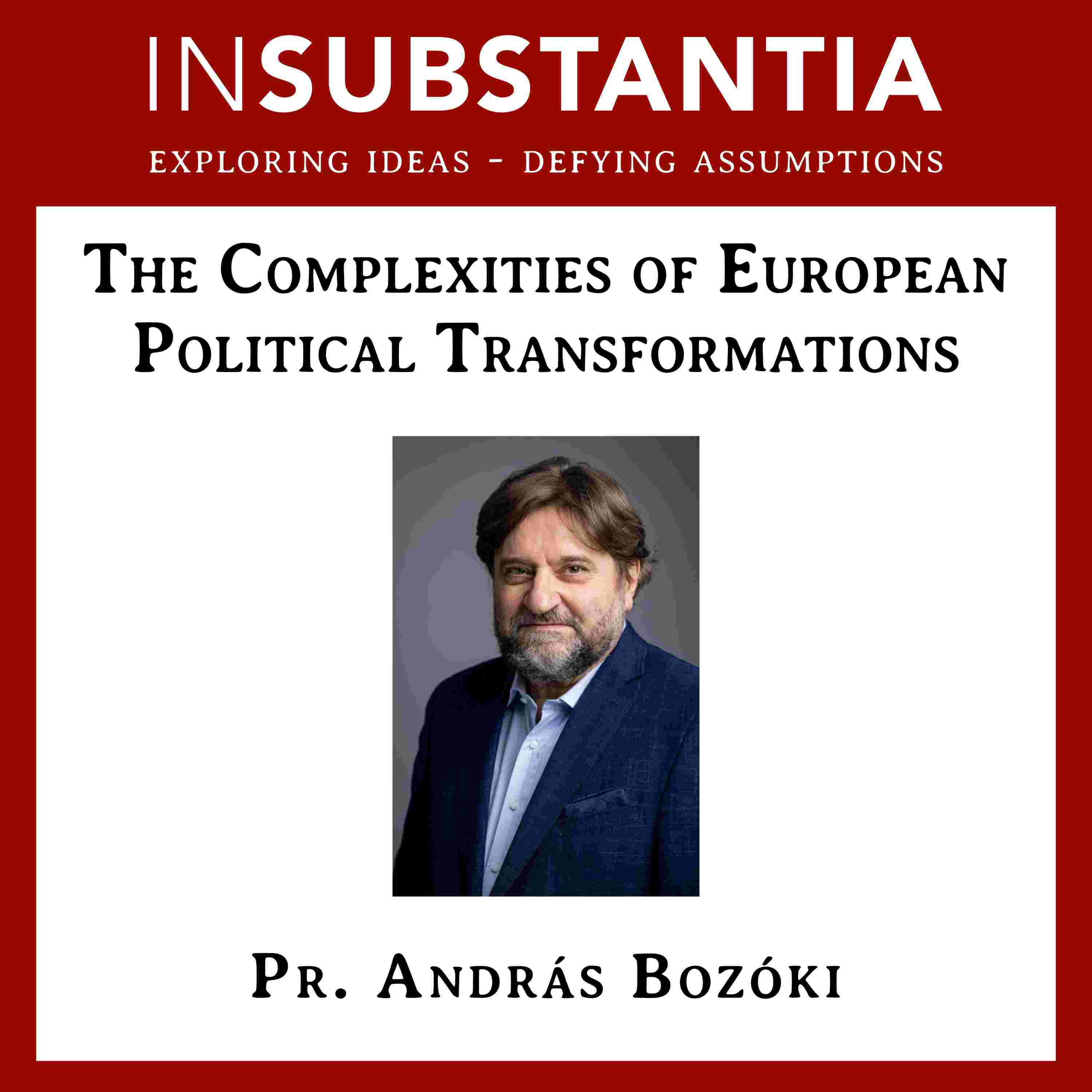

Abstract
Are we witnessing the erosion of democracy in Europe, or a chance for revitalization? Explore shifting ideologies and global dynamics with Prof. András Bozóki on the latest episode of 'Insubstantia.' A deep dive into the heart of Central and Eastern European political change.
A Changing Definition of Democracy
Recently, I had the privilege of discussing with András Bozóki, a Professor of Political Science at the Central European University.
András Bozóki eloquently examined how real-time global events, such as the Ukraine-Russia conflict and the resurgence of nationalism, are reshaping the essence of democracy. Traditionally viewed as a realm of rational discourse and representative governance, democracy now grapples with the challenge of becoming a spectacle dominated by charismatic personalities and visual media. This transformation raises questions about the future of political science in Europe and the efficacy of traditional democratic structures in addressing contemporary issues.
The Future of Multilateralism in Europe
The discussion also touched upon the future of multilateralism amid growing nationalism and protectionism worldwide. Bozóki highlighted the challenges of building a unified European front capable of addressing such divergences. While the situation appears complex, he expressed optimism about Europe’s potential to collaborate and strengthen its position on the global stage, advocating for a united European army to bolster defense capabilities.
Ukraine: A Pawn or a Sovereign Nation?
In exploring the geopolitical dynamics, Ukraine emerged as a focal point. The notion that Ukraine might become a 'sacrificial lamb' under influence from global powers is alarming. Bozóki emphasized the importance of solidarity with Ukraine, critiquing any strategies that might undermine its sovereignty by turning it into a mere pawn in global politics. He warned against the dangerous alliances that might form if European countries were to distance themselves from traditional ties with the U.S. and seek new partnerships with China or the BRICS nations.
Central and Eastern Europe’s Role in the EU
Bozóki's insights into the role of Central and Eastern Europe in shaping the EU’s future were enlightening. These regions offer a diverse range of political legacies and current realities, from anti-Russian sentiments in Poland to the ambivalent legacies in Hungary. The enduring struggle between democracy and autocracy in these regions significantly impacts EU unity, underscoring the need for strategic collaboration.
Addressing Democratic Backsliding
Bozóki's expertise in democratic backsliding shed light on the internal challenges facing European democracies. The rise of populism and nationalist movements poses a serious threat to liberal democratic values. He argued that addressing these challenges requires grassroots movements and civic education that empower citizens to actively participate in democratic processes. This civic engagement could serve as a counterbalance to populist rhetoric and demagogic tendencies.
Conclusion: A Call for Solidarity and Innovation
In concluding our discussion, András Bozóki stressed the need for a new social contract within the European Union, addressing democratic backsliding, social inequality, and economic disparities. Governments, civil society, and the private sector must work in tandem to create frameworks that adapt to societal shifts and preserve democratic integrity. His insights remind us that navigating the complexities of political transformations requires not only continuous dialogue but also innovative solutions that respect historical legacies while embracing future challenges.
As Europe stands at the crossroads of political transformation, the perspectives shared by Bozóki provide valuable guidance in understanding and addressing the evolving political landscape. His call for solidarity and proactive engagement serves as a roadmap for a united and resilient Europe.